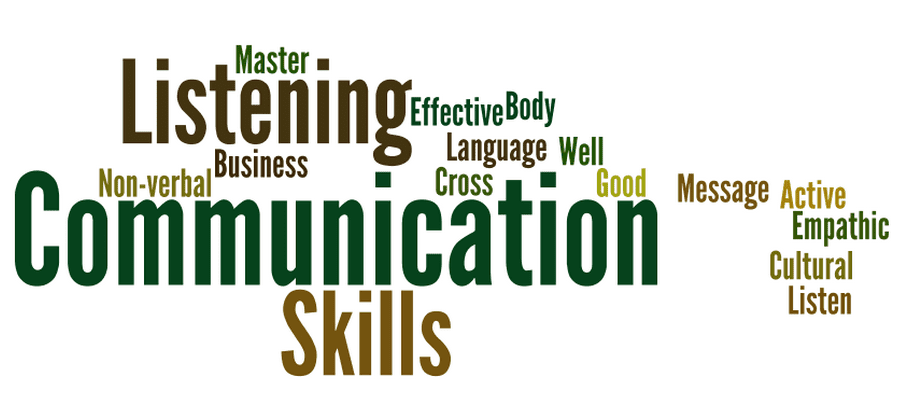However technically sharp a person is, he will be neither recognized nor appreciated for his/her efforts unless s/he masters communication and interpersonal skills. To excel in any field – technical or non-technical – and to attain a higher position in the organization, a person needs to have proper soft skills. It is a must – no compromise at all.
Well, one may have a strong argument that what role these soft skills play in professional development. As long as s/he is thorough with the knowledge to deliver the tasks, what is the need to ensure having proper communication and interpersonal skills? Do they have any major role to play in the IT field, especially for developers? Yes, they do – let’s dive into the details.
Must have communication and interpersonal skills for developers
Socialization skills are usually learned at a tender age and they become a part of our overall personality and behavior. When at the workplace, these skills take a front seat in building your impression.
Research shows that poor interpersonal skills are the number one reason why people don’t get along, don’t get promoted or, even worse, lose their jobs.

To become a successful professional developer, a person needs to master these communication and interpersonal skills:
(1) Effective communication with peers and subordinates
The art of communication is the language of leadership. – James Humes.
Good communication acts as a bridge between confusion and clarity. Further, developers are a key part of the entire production team. They need to do the maximum level of verbal as well as non-verbal coordination. They need to speak up in meetings, whether internal and external, with colleagues, superiors, clients, peers, subordinates, etc.. And hence, good communication skills are a must.

This includes all sorts of communications e.g.
- online chat
- telephonic conversation
- email /message communications
- social media interactions
- others
In order to develop good communication skills, developers need to have better listening skills as well. Just don’t listen to respond, rather listen to understand and then respond. Also, there should not be any interruption while one person is speaking so that chances of misinterpretation remain very less. Pay due attention to your body language as well. If anyone has come to meet you in person at your work-desk, lock your monitor screen, put away your tablet or laptop, and keep your cell-phone on silent mode and focus only on what is being said.
(2) Approachable and helpful
Successful people are always looking for opportunities to help others. Unsuccessful people are always asking, ‘What’s in it for me?’ – Brian Tracy.
How often does the team need to interact with developers? Be it discussing wireframes, budgeting development time, reporting to project managers, finalizing designs, dealing with coding issues, solving bugs, or coordinating with clients – developers are very much required in each and every stage. So, it is imperative that they should be approachable. At the same time, helpful too! Here, being approachable is key. The developers should be able to establish a friendly rapport with the entire team. They are the nugget that connects the entire chain of any development project. In case of tight deadlines, ensure that if you are not approachable run time, provide the team with a set timeline to meet and discuss issues.
(3) Problem-solving attitude and skills
Problem-solving, inventing, hacking and coding is more of an adrenaline rush of endorphins rather than a feeling. – Walter O’Brien.
For any developer or any programmer, problem-solving skills are of utmost essential. Problems are bound to occur. Issues can crop up any time and, at times, they result in conflicts. But the important thing is how you handle your problems. Your problem-solving attitude and skills will have a big impact on both your career as a developer and the employer you work for.
(4) Effective time management
Time is what we want most, but what we use worst. – William Penn
Time management is not something that works for 9 hours at your office desk. But it is all about the completion of tasks in due timelines without compromising on quality. Most of the developers juggle between projects and tasks. Multitasking is good as it gives good exposure but not at the cost of productivity and efficiency. There’s always too much of to and fro in their coding. Executives engaged in the field of software development must keep their heads high above the water to succeed. Well, the same applies equally to any developer or member of the team.
These are some tips to enhance time management skills:
- Proper planning of the tasks, since 70% of the development task includes the research phase and the rest of the 30% is actual coding and testing.
- Prioritization of important and blocker tasks and delegation of few tasks to ensure timely completion
(5) Softness in writing tone
Writing is the painting of voice. – Voltaire
Often we come across instances where verbal communication makes sense but the same, when reaches our inbox as MOM, sounds horrible. This is nothing but a lack of proper written communication skills. The written words are quite powerful that they can either make or break your relationship with your fellow colleagues and teammates.
Harshly written words can hurt sentiments and often create conflicts with recipients. Always be careful when you chose your words. in case, you are unsure about the tone, you may use smileys to soften the message. Have at least one line of gratitude in your written communications.
(6) Critical and analytical thinking
The essence of the independent mind lies not in what it thinks, but in how it thinks. ― Christopher Hitchens
No doubt both these skills come with experience. But, they are crucial for any developer. Both critical and analytical skills are important for gathering the right information, reporting, making educated and well-informed decisions, solving complex issues, streamlining processes, summarising stats and identifying trends. It also helps to ensure the effective execution of projects.
Creativity and analytical thinking can be sharpened by asking basic questions, questioning your hypothesis, and trying reversing things.
Over to you!
Apart from what is mentioned, there are yet other interpersonal skills that can help shape the career and impression of developers. On average, 40-50 hours per week are spent at the workplace. Hence, it is imperative to have healthy relationships with colleagues. It can be maintained by always staying cooperative, polite and professional. Give respect and earn respect. Be patient, adaptive and accountable.


